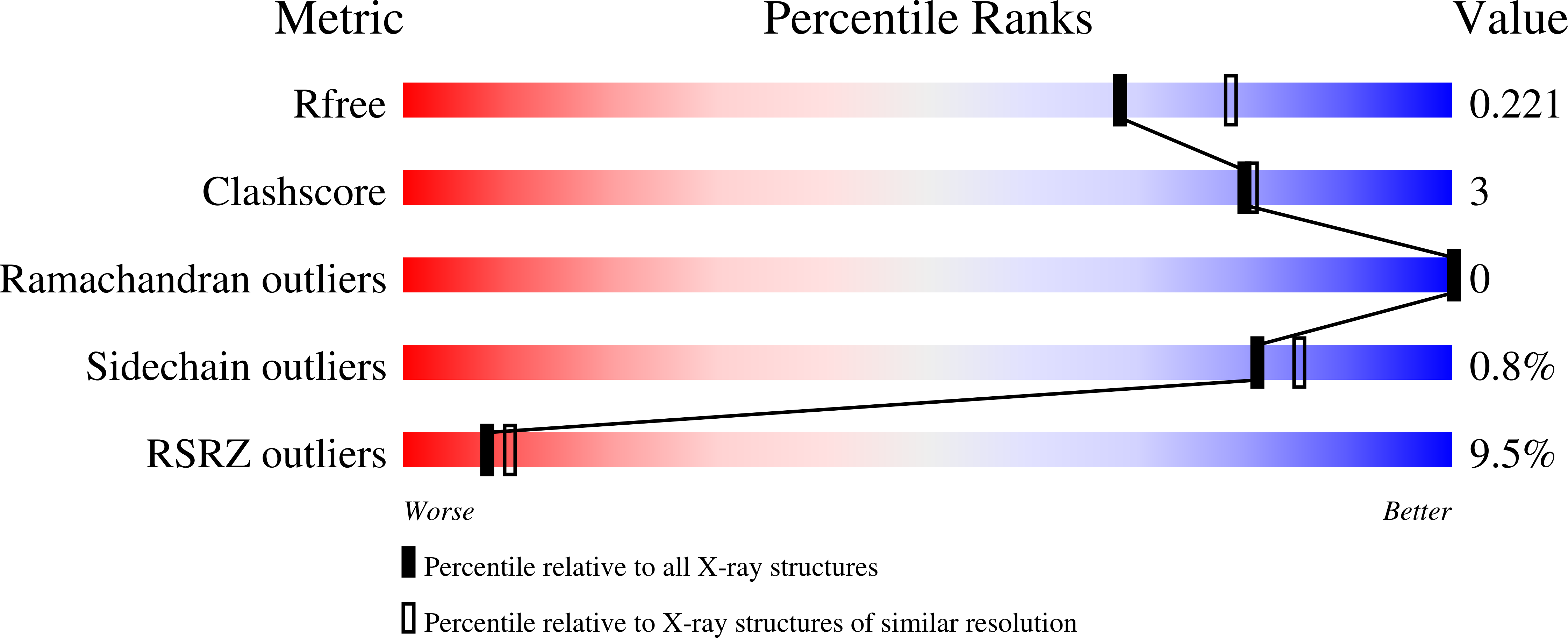Structural basis for tRNA methylthiolation by the radical SAM enzyme MiaB.
Esakova, O.A., Grove, T.L., Yennawar, N.H., Arcinas, A.J., Wang, B., Krebs, C., Almo, S.C., Booker, S.J.(2021) Nature 597: 566-570
- PubMed: 34526715
- DOI: https://doi.org/10.1038/s41586-021-03904-6
- Primary Citation of Related Structures:
7MJV, 7MJW, 7MJX, 7MJY, 7MJZ - PubMed Abstract:
Numerous post-transcriptional modifications of transfer RNAs have vital roles in translation. The 2-methylthio-N 6 -isopentenyladenosine (ms 2 i 6 A) modification occurs at position 37 (A37) in transfer RNAs that contain adenine in position 36 of the anticodon, and serves to promote efficient A:U codon-anticodon base-pairing and to prevent unintended base pairing by near cognates, thus enhancing translational fidelity 1-4 . The ms 2 i 6 A modification is installed onto isopentenyladenosine (i 6 A) by MiaB, a radical S-adenosylmethionine (SAM) methylthiotransferase. As a radical SAM protein, MiaB contains one [Fe 4 S 4 ] RS cluster used in the reductive cleavage of SAM to form a 5'-deoxyadenosyl 5'-radical, which is responsible for removing the C 2 hydrogen of the substrate 5 . MiaB also contains an auxiliary [Fe 4 S 4 ] aux cluster, which has been implicated 6-9 in sulfur transfer to C 2 of i 6 A37. How this transfer takes place is largely unknown. Here we present several structures of MiaB from Bacteroides uniformis. These structures are consistent with a two-step mechanism, in which one molecule of SAM is first used to methylate a bridging µ-sulfido ion of the auxiliary cluster. In the second step, a second SAM molecule is cleaved to a 5'-deoxyadenosyl 5'-radical, which abstracts the C 2 hydrogen of the substrate but only after C 2 has undergone rehybridization from sp 2 to sp 3 . This work advances our understanding of how enzymes functionalize inert C-H bonds with sulfur.
Organizational Affiliation:
Department of Chemistry, The Pennsylvania State University, University Park, PA, USA. oae3@psu.edu.

















